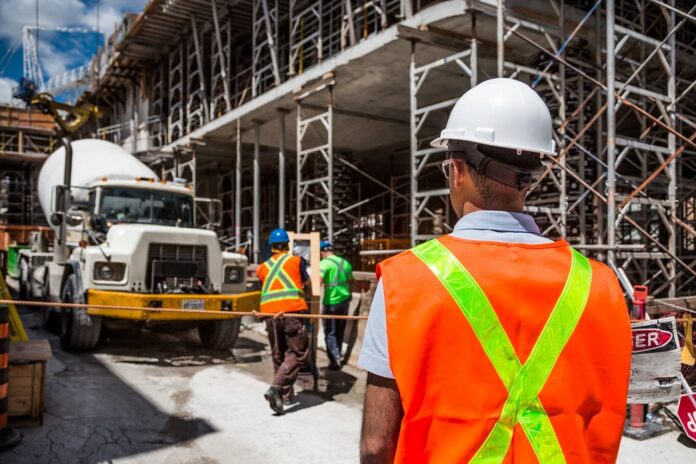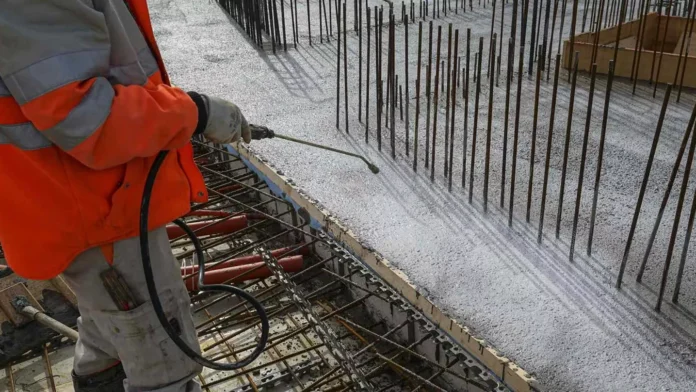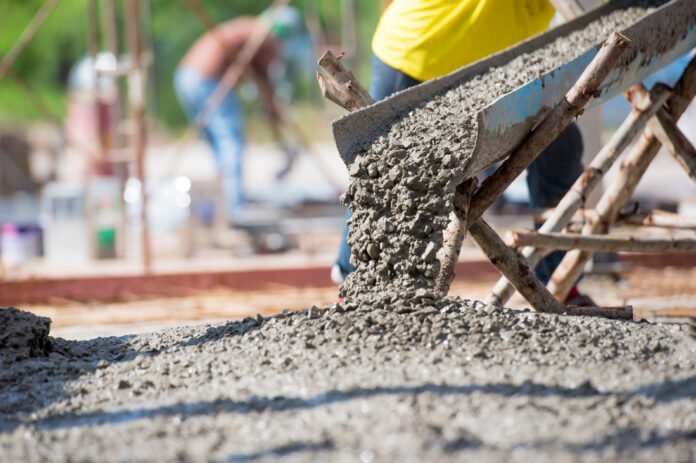
A concrete contractor is a key figure in construction projects. But what do they do? As it turns out, their responsibilities are as diverse as they are essential. They blend science and creativity, working with one of the world’s most versatile materials: concrete. In this article, we examine this profession with real-life examples and explanations.
For more information about concrete contractor work, check out this post from Bridgit.
Misconceptions Concerning Concrete Contractors
To clarify the role and importance of a concrete contractor, it’s crucial to debunk some common misconceptions that people often have about this profession.
Concrete Contractors Only Work With Basic Materials
One major misconception is that concrete contractors only work with basic, gray cement. In reality, they work with a variety of materials, including colored, stamped, and stained concrete, creating diverse and aesthetically pleasing designs.
They Only Do Heavy Construction Work
Many people assume that the work of concrete contractors is limited to large-scale construction projects. While they do play a significant role in such projects, they also handle smaller tasks, such as concrete repairs, driveway installations, and decorative concrete work.
Concrete Contractors Lack Creativity
There’s a belief that concrete contractors merely follow blueprints without inputting any creative ideas. However, this is far from the truth. These professionals often design and implement creative and unique ideas, turning ordinary concrete into extraordinary pieces of art.
Their Work is Easy and Can Be DIY
This is one of the most dangerous misconceptions. Concrete work requires professional skills, knowledge, and equipment. Mishandling can lead to poor results and even severe injuries.
What Concrete Contractors Actually Do

Concrete contractors are multifaceted professionals with a broad range of responsibilities. They perform a variety of tasks that are crucial to the successful completion of construction projects, both large and small.
Planning
Concrete contractors are responsible for planning the job. They read and interpret blueprints, ensuring compliance with building codes and regulations.
For example, when constructing a building, they determine the appropriate mix of concrete, calculate the volume required, and plan the pouring schedule.
Mixing Concrete
They handle the preparation and mixing of the concrete, which is more than just stirring cement, water, and aggregate. Their knowledge of different concrete mixtures, additives, and how they react in various weather conditions is crucial to ensuring the concrete’s strength and durability.
Pouring Concrete
This step is not as simple as it seems. It involves pouring the concrete evenly to prevent the formation of weak spots.
Concrete contractors also need to consider the weather. On a hot day, for instance, they may need to pour in the early morning or late evening to avoid rapid drying.
Leveling
Using tools like trowels and screeds, concrete contractors level the surface of the concrete after it has been poured. This requires precision and attention to detail, as any irregularities on the surface may lead to structural instability.
Curing

After the concrete is poured and leveled, it must be allowed to cure – a process that can take several weeks. Concrete contractors manage this process, ensuring the concrete maintains its moisture and temperature to harden and gain strength properly.
Decorative Work
Beyond structural jobs, concrete contractors can also create stunning decorative pieces. Whether it’s a stamped patio that resembles brick or stone, a polished concrete floor with a high-gloss finish, or a countertop with an intricate, colorful design, they bring creativity and aesthetic sensibility to their work.
Repair Work
This involves repairing damaged concrete structures, fixing cracks, and performing other maintenance tasks.
For example, if a concrete driveway has developed a crack, a contractor will assess the damage, prepare the area, and apply a repair material to restore its appearance and functionality.
Ensuring Safety and Compliance
Concrete contractors play a critical role in ensuring safety and compliance on construction sites. They are responsible for adhering to all safety regulations and guidelines while working with concrete. This includes implementing safety measures for themselves and their team, as well as safeguarding the surrounding environment. They also need to ensure that the concrete work complies with local building codes and regulations, preventing any legal issues down the line.
For example, they may need to set up barriers or safety fences around the construction area, provide proper signage, and follow safety protocols for handling concrete equipment and materials. Their expertise in safety measures is essential in preventing accidents and injuries during the construction process.
Concrete Finishing Techniques
Achieving a smooth and aesthetically pleasing finish on concrete surfaces is an art in itself. Concrete contractors are skilled in various finishing techniques that enhance the appearance and functionality of concrete structures. They use tools such as bull floats, edgers, and brooms to create different textures and finishes on concrete surfaces.
For instance, they can give a concrete sidewalk a brushed finish for added traction or create a polished, glossy surface for decorative flooring. These finishing touches not only contribute to the overall look of the project but also serve functional purposes, such as improving grip or making surfaces easier to clean.
Project Management and Coordination

Concrete contractors are often involved in managing and coordinating various aspects of construction projects. This includes overseeing the scheduling of concrete pours, coordinating with other subcontractors and trades, and ensuring that the project stays on track.
They must have strong project management skills to ensure that concrete work is completed efficiently and within budget. This involves scheduling deliveries of concrete, coordinating with concrete suppliers, and managing the workflow to meet project milestones. Effective project management by concrete contractors is crucial for the overall success of construction projects.
Environmental Considerations
In today’s construction industry, environmental sustainability is a growing concern. Concrete contractors are increasingly responsible for incorporating environmentally friendly practices into their work. They must consider the environmental impact of concrete production and disposal.
Some concrete contractors specialize in using eco-friendly concrete mixtures with recycled materials or low-carbon cement alternatives. They also need to manage concrete waste responsibly, recycling where possible and minimizing the environmental footprint of their projects.
For example, they may implement strategies to reduce water usage in the curing process or explore innovative ways to repurpose concrete waste. Concrete contractors who prioritize sustainability contribute to more environmentally responsible construction practices.
Concrete Contractors, an Essential Piece of Construction Projects
The role of a concrete contractor is far more complex and multifaceted than commonly perceived. They’re not just laborers, but professionals with a broad array of responsibilities. Their knowledge, skills, and creativity are instrumental in transforming ordinary cement into durable and aesthetically pleasing structures.






